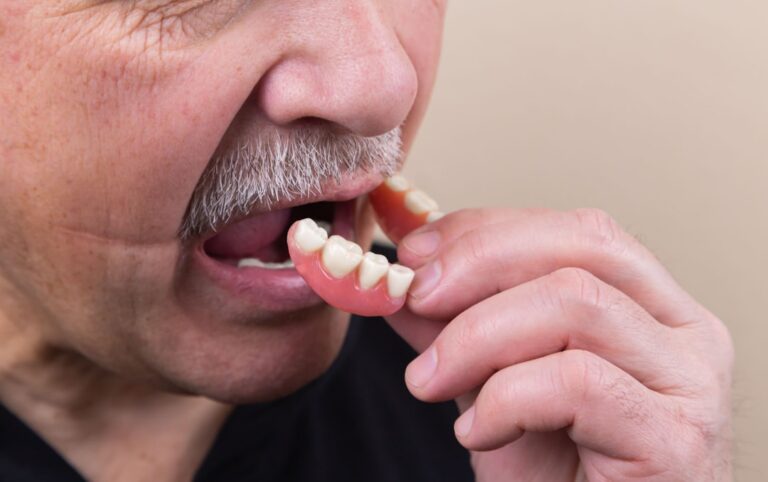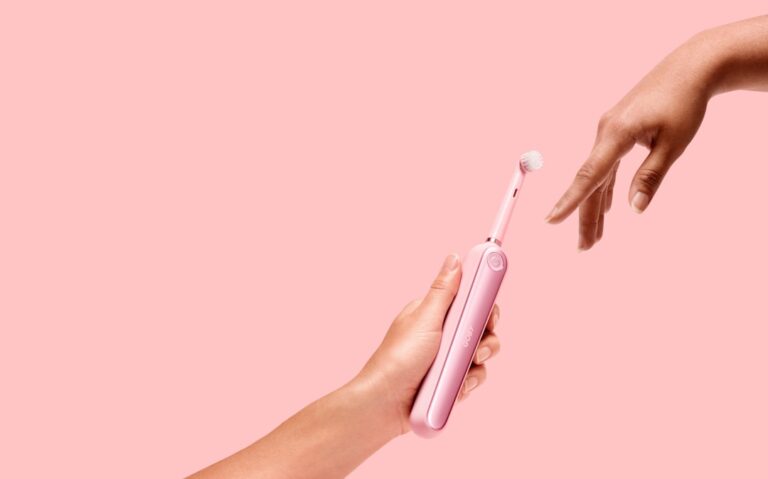Dental floss is an essential tool for maintaining good oral hygiene. It plays a crucial role in removing food particles and plaque from between the teeth and along the gumline, where toothbrushes cannot reach. Flossing helps prevent the buildup of plaque, which can lead to tooth decay, gum disease, and bad breath. By incorporating flossing into your daily oral care routine, you can significantly reduce the risk of developing these oral health issues.
In addition to preventing dental problems, using dental floss also contributes to overall health. Research has shown that there is a link between oral health and systemic health, with poor oral hygiene being associated with an increased risk of certain medical conditions, such as heart disease and diabetes. By maintaining good oral hygiene, including regular flossing, you can help reduce the risk of these systemic health issues. Overall, the importance of using dental floss cannot be overstated, as it is a key component of a comprehensive oral care routine that promotes both oral and systemic health.
Key Takeaways
- Using dental floss is important for removing plaque and food particles from between teeth, preventing cavities and gum disease.
- When choosing dental floss, consider factors such as thickness, waxed or unwaxed, and special features like fluoride coating or flavor.
- Some top dental floss brands on the market include Oral-B, Glide, and Reach, known for their quality and effectiveness.
- Different types of dental floss, such as waxed, unwaxed, tape, and floss picks, offer various benefits for different oral care needs.
- Properly using dental floss involves gently sliding it between teeth, forming a C-shape around each tooth, and using a clean section for each tooth.
- Making flossing a regular habit can be achieved by setting a routine, using flossing aids, and seeking support from dental professionals.
- Dental floss plays a crucial role in maintaining overall oral health by reaching areas that toothbrushes can’t, preventing gum disease and promoting fresh breath.
Factors to Consider When Choosing Dental Floss
When it comes to choosing dental floss, there are several factors to consider to ensure that you are using the most effective product for your needs. One important factor to consider is the thickness of the floss. Thicker floss may be more suitable for individuals with wider gaps between their teeth, while thinner floss may be better for those with tighter spaces. It is important to choose a floss that can easily slide between your teeth without causing discomfort or shredding.
Another factor to consider is the type of floss material. Dental floss is available in various materials, including nylon, Teflon, and silk. Each material has its own advantages, so it is important to choose one that best suits your preferences and needs. Additionally, some individuals may have sensitivities or allergies to certain materials, so it is important to consider this when selecting dental floss. Finally, consider the flavor of the floss. Some people prefer flavored floss to make the experience more enjoyable, while others may prefer unflavored options. Ultimately, choosing the right dental floss involves considering factors such as thickness, material, and flavor to ensure that you are using a product that is effective and comfortable for your individual needs.
Top Dental Floss Brands on the Market
There are several top dental floss brands on the market that offer a wide range of options to meet the diverse needs of consumers. One of the most well-known brands is Oral-B, which offers a variety of dental floss products, including waxed and unwaxed floss, as well as floss picks for added convenience. Another popular brand is Johnson & Johnson, which produces the well-known Reach dental floss. This brand offers a range of floss options, including waxed, unwaxed, and flavored varieties.
Additionally, Glide by Oral-B is another top dental floss brand that is known for its smooth and easy-to-use floss products. This brand offers floss options that are designed to glide effortlessly between teeth, making the flossing experience more comfortable and effective. Another top brand is Colgate, which offers a range of dental floss products, including waxed and unwaxed options, as well as floss picks for added convenience. These top dental floss brands provide consumers with a variety of options to choose from, ensuring that there is a product available to meet the unique needs and preferences of each individual.
Different Types of Dental Floss and Their Benefits
| Type of Dental Floss | Benefits |
|---|---|
| Nylon Dental Floss | Effective at removing plaque and food particles |
| PTFE Dental Floss | Glide easily between teeth and are shred-resistant |
| Flavored Dental Floss | Make flossing more enjoyable and can freshen breath |
| Waxed Dental Floss | Slide easily between teeth and are less likely to break |
| Unwaxed Dental Floss | Thinner and can fit into tight spaces |
There are several different types of dental floss available on the market, each with its own unique benefits. Waxed dental floss is coated with a thin layer of wax, making it easier to slide between teeth and less likely to shred or break during use. This type of floss is particularly beneficial for individuals with tight spaces between their teeth or those who are new to flossing and may find it more challenging to maneuver traditional unwaxed floss.
Unwaxed dental floss, on the other hand, does not have a coating and is made from nylon or Teflon material. This type of floss is thinner than waxed floss and may be more suitable for individuals with wider gaps between their teeth. Unwaxed floss is also less likely to leave a residue on the teeth, making it a popular choice for those who prefer a more natural flossing experience. Additionally, there are flavored dental floss options available, which can make the flossing experience more enjoyable for some individuals.
Floss picks are another type of dental floss that are designed for added convenience and ease of use. These disposable plastic tools feature a short piece of floss stretched between two prongs, making it easier to reach between teeth and along the gumline. Floss picks are particularly beneficial for individuals who struggle with traditional flossing techniques or have difficulty maneuvering regular dental floss. Overall, the different types of dental floss each offer unique benefits, allowing individuals to choose a product that best suits their individual needs and preferences.
How to Properly Use Dental Floss for Maximum Effectiveness
Properly using dental floss is essential for achieving maximum effectiveness in removing food particles and plaque from between the teeth and along the gumline. To begin, start by breaking off a piece of dental floss that is approximately 18 inches long. Wrap the ends around your middle fingers, leaving about 1-2 inches of floss between them. Hold the floss tightly between your thumbs and forefingers and gently guide it between your teeth using a back-and-forth motion.
Once the floss reaches the gumline, curve it into a C-shape against one tooth and gently slide it into the space between the tooth and gum. Be sure to use a clean section of floss for each tooth to avoid transferring bacteria from one tooth to another. As you move from tooth to tooth, use a fresh section of floss each time. After cleaning between all of your teeth, be sure to also gently clean along the gumline to remove any remaining plaque or food particles. Properly using dental floss in this manner ensures that you are effectively removing debris from between your teeth and along the gumline for maximum oral hygiene benefits.
Tips for Making Flossing a Regular Habit

Making flossing a regular habit is essential for maintaining good oral hygiene and preventing dental problems. One tip for making flossing a regular habit is to incorporate it into your daily oral care routine at the same time each day. Whether you choose to floss before or after brushing your teeth, establishing a consistent routine can help make flossing a regular part of your daily habits.
Another tip is to keep dental floss easily accessible in multiple locations, such as in your bathroom, at work, or in your car. By having floss readily available in various places, you are more likely to remember to use it throughout the day. Additionally, consider using tools such as floss picks or interdental brushes if traditional dental floss is challenging for you to use. These alternative tools can make it easier to clean between your teeth and may help make flossing a more manageable task.
Finally, consider setting reminders or using incentives to help motivate yourself to floss regularly. Whether it’s setting a daily reminder on your phone or rewarding yourself for consistent flossing habits, finding ways to stay motivated can help make flossing a regular part of your oral care routine. By implementing these tips and strategies, you can make flossing a regular habit that contributes to maintaining good oral hygiene and overall health.
The Role of Dental Floss in Maintaining Overall Oral Health
Dental floss plays a crucial role in maintaining overall oral health by effectively removing food particles and plaque from between the teeth and along the gumline. By doing so, it helps prevent the buildup of plaque, which can lead to tooth decay, gum disease, and bad breath. Regularly using dental floss as part of a comprehensive oral care routine can significantly reduce the risk of developing these common oral health issues.
In addition to preventing dental problems, using dental floss also contributes to maintaining healthy gums. Flossing helps remove plaque from along the gumline, reducing the risk of gum disease and inflammation. By maintaining healthy gums through regular flossing, individuals can help prevent issues such as gingivitis and periodontitis, which can lead to more serious oral health problems if left untreated.
Furthermore, maintaining good oral hygiene through regular use of dental floss has been linked to overall systemic health benefits. Research has shown that poor oral hygiene can be associated with an increased risk of certain medical conditions such as heart disease and diabetes. By incorporating regular flossing into your oral care routine, you can help reduce this risk and contribute to better overall health.
In conclusion, using dental floss is an essential component of maintaining good oral hygiene and overall health. By choosing the right type of dental floss and using it properly on a regular basis, individuals can effectively remove food particles and plaque from between their teeth and along the gumline, reducing the risk of dental problems such as tooth decay and gum disease. Making flossing a regular habit through consistent routines and strategies can further contribute to maintaining good oral health. Overall, dental floss plays a crucial role in promoting overall oral health and should be an integral part of everyone’s daily oral care routine.
If you’re looking for the best dental floss, you may also be interested in learning about the benefits of oil pulling for oral health. Oil pulling is an ancient Ayurvedic practice that involves swishing oil in your mouth to remove bacteria and improve oral hygiene. To learn more about the benefits of oil pulling, check out this article on Nourish Thrive Hub.
FAQs
What is dental floss?
Dental floss is a thin, soft thread used to remove food and plaque from between the teeth and along the gumline.
Why is dental floss important?
Dental floss is important for maintaining good oral hygiene by removing food particles and plaque from areas that a toothbrush cannot reach.
How often should I floss my teeth?
It is recommended to floss at least once a day, preferably before brushing your teeth.
What are the different types of dental floss available?
There are various types of dental floss available, including waxed and unwaxed floss, flavored floss, dental tape, and floss picks.
What is the best dental floss to use?
The best dental floss to use is one that is comfortable for you to use regularly and effectively removes plaque and debris from between your teeth. It is recommended to consult with a dentist to find the best option for your specific needs.













+ There are no comments
Add yours